Christoph Mülke
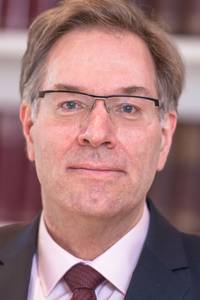
Vice President for Finance and Administration, Ludwig-Maximilians-Universität München
Dr. Christoph Mülke, who was born in Bielefeld in 1968, has broad experience in science management. He has been Vice President of LMU since May 2010. In 2013 and 2018, he was re-elected to this position.
After studying Classics and Comparative Linguistics in Münster and Tübingen, Dr. Mülke spent a research year at Oxford University, before returning to Tübingen University, where he obtained a doctoral degree in Classics. In 1999, he joined the Office of the German Council of Science and Humanities (“Wissenschaftsrat”) in Cologne. There Dr. Mülke served in various capacities, including those of a Deputy Director of the Department of Higher Education and Research Training and a Personal Assistant to the Chairperson and Secretary-General. In 2005, he came to LMU as Head of the Strategy Office.
As Vice President, Dr. Mülke serves as Head of LMU’s Central Academic Services and Administration. He also holds the office of the Chief Financial Officer (CFO).
In addition, Dr. Mülke is a member of various boards, within and outside LMU. For example, he serves as member of the executive board of the Münchener Universitätsgesellschaft (alumni organisation of the University) and g.a.s.t., the Gesellschaft für Akademische Studienvorbereitung und Testentwicklung (TestDAF-Institute). Furthermore, he is member of the Council of the Studentenwerk München (Munich Student Union) and the Internationales Begegnungszentrum der Wissenschaft (International Centre for Encounter for Scientists).
Prof. Heikki Mannila

President of the Academy of Finland, the Finnish Research Council
Research impact is a very complex phenomenon, and misunderstandings are common in discussions about it. Basic issues when discussing impact include the many roles of science, the different routes of research impact, and the varying relationship between excellence and impact in different research areas. These three issues have implications for assessing and supporting impact. For example, in most research areas technology transfer represents only a small part of societal impact, and impact through people is far more common. While numerical indicators for impact typically manage to capture only single aspects of impact, different types of peer review seem better suited for supporting and developing impact as one part of all the activities of universities. Heilkki will discuss experience from recent research funding instruments in Finland.
Heikki Mannila received his Ph.D. in computer science in 1985 from the University of Helsinki. After some time at the University of Tampere and various researcher positions, in 1989 he was appointed a professor of computer science at the University of Helsinki. He was a visiting professor in the Technical University of Vienna in 1993 and a visiting researcher at the Max Planck Institute for Computer Science in Saarbruecken in 1995-96. He moved to Microsoft Research in Redmond in 1998, came back to Finland to Nokia Research in 1999, where he stayed until the end of 2001. Since 1999 he is a professor of computer science at Helsinki University of Technology (currently Aalto University). In 2004-2008 he was an academy professor.
In 2009-2012 he was vice president for academic affairs and deputy president at Aalto University, the new university formed by the merger of Helsinki University of Technology, Helsinki School of Economics, and University of Art and Design Helsinki.
In 2012 Heikki Mannila was appointed president of the Academy of Finland – the Finnish Research Council, which funds scientific research in all disciplines through open calls and international peer review. It handles about 4000 applications per year, of which approximately 15 % are funded. The budget of the Academy of Finland is over 400 million euros. In 2017 Heikki Mannila was appointed for a second five-year term as the president of the Academy of Finland.
Heikki Mannila is the author of two books and over 190 refereed articles in computer science and related areas. His specific area of interest is in algorithms for data analysis, and applications in science and in industry. The book ”Principles of Data Mining”, with David Hand and Padhraic Smyth, is available also in Chinese and in Polish. He received the ACM SIGKDD Innovation award in 2003 and the IEEE ICDM research contributions award in 2009.
Prof. Luc Soete

Former Rector Magnificus of Maastricht University
There is general consensus that publicly funded research plays an essential role both in finding solutions to the many global challenges human kind is confronted with and as public, open knowledge platform to private R&D investment and innovation leading to new value creation in a variety of different forms (new products, processes, organisation, etc.). At the same time there is also broad consensus that the public commitment to research, as reflected in the political priority given to the public funding of research, has come under pressure in most countries. Not just in a declining priority given by politicians to R&D as reflected in governments’ annual budgetary expenditures, but also indirectly through the growing emphasis put on the valorisation and impact of research within public research funding organisations and universities. While difficult, if not impossible to measure, showing ex-ante the possible future value or (social) impact of research funding is today what is expected from researchers applying for funding in many research fields.
Hence the particular emphasis put on “science communication”, on the need for popular presentations of scientific output to the public at large using different social media channels, and at the science policy level on the need to provide policy makers with evidence on the rate of return to publicly funded research. Living off tax payers’ money, the research community has to prove its worth to the citizen. This emerging trend reflects the dominant political view, that the public funding of research is ultimately part of democratically chosen, public choices as reflected in a country’s budgetary priorities. If over time, those priorities shift to other priorities, such as migration, security or, as in the case of the UK, leaving the EU, such shifts represent democratic political priorities.
Whatever the political context, ultimately the minister(s) responsible for funding research will have to report to the public what the government has spent on research, where the spending has occurred (location and industry), what the spending was for (socio-economic objectives) and what the public has gained as a result of this funding. It is this last item that motivates what follows.
In this short note, we describe a new, alternative road based on a technologically driven, secure and trusted ledger system recording the direct impact of publicly funded research. The way to do so, we suggest, is by making transparent the externalities and spill-overs which emerge from publicly funded research and which become integrated in private and/or public value creation.
Until September 2016 Luc Soete (15 September 1950, Brussels) was Rector Magnificus of Maastricht University. Before that he was Director of the United Nations University research and training institute: UNU-MERIT located in Maastricht, The Netherlands and Professor of International Economic Relations and Director-Dean of the Maastricht Graduate School of Governance (MGSoG) at Maastricht University. He is a member of the Advisory Council for Science and Technology Policy (AWT) and the Royal Dutch Academy of Science (KNAW).
Luc Soete graduated in economics from Ghent University, Belgium. He obtained a DPhil in economics from Sussex University where he worked as senior research fellow at the Science Policy Research Unit in the late 70’s and 80’s. From 1984 till 1985 he was visiting associate professor at the Department of Economics at Stanford University, USA. In 1986 he joined the new Faculty of Economics and Business Administration (now called the School of Business and Economics) at Maastricht University as professor of International Economics Relations. In 1988 he set up the research institute MERIT (Maastricht Economic Research centre on Innovation and Technology) which merged under his direction in 2005 with UNU-INTECH to become UNU-MERIT. In 2010 he became Director-Dean of the Maastricht Graduate School of Governance of Maastricht University. He is a member of the Board of the Maastricht School of Management (MSM) and the Belgian media company Concentra.
Over the last 30 years, Luc Soete has contributed as (co-)author and (co-)editor to some 11 books, 50 refereed articles and some 100 chapters in books. In 2002, he received the MSM Honorary Fellow Award, in 2007 the Belgian reward Commandeur in de Kroonorde and in 2010 a Doctor Honoris Causa from his Alma Mater, the University of Ghent.
Robert-Jan Smits
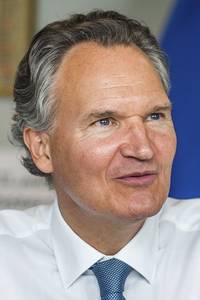
Chairman of Eindhoven University of Technology’s Board and former Director General of Research and Innovation at the European Commission
Robert-Jan Smits is President of the Executive Board since May 2019. As President he believes that universities must seek a stronger connection with and relevance to society and its challenges. Educating young talents and carrying out excellent research is essential. The TU/e is embedded in a strong high-tech region. Together and in full partnership, university and industry in this innovation ecosystem are realising the unimaginable.
Smits is the former Director-General of Research and Innovation at the European Commission. In this position he has been the architect over the past decade of the large-scale EU Research and Innovation programme Horizon 2020. He was responsible for the design, negotiations and the execution of the 80 billion euro support programme for research and innovation. He has also given shape to the run-up to the future innovation programme, Horizon Europe (100 billion euros). Until his start at the university Robert-Jan Smits was the Open Access Envoy of the European Commission and launched the concrete policy proposal intended to ensure that in 2020 all publicly financed academic publications are publicly available.
David Sweeney
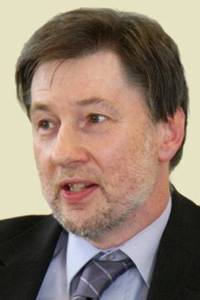
Executive Chairman of Research England
After gaining First Class Honours in Statistics at the University of Aberdeen, David worked at two BBSRC research institutes, as a consultant statistician before developing mathematical models of plant growth. His work on the computational aspects of this led into broader applications of IT in education and research, and he was Director of Information Services at Royal Holloway, University of London, before moving into university leadership as Vice-Principal (Communications, Enterprise and Research) in 2004. In this role he was responsible for research strategy and for developing Royal Holloway’s research-led commercial and consultancy activities.
He joined HEFCE in 2008 as Director (Research, Innovation and Skills) and led the development and implementation of the first Research Excellence Framework including the new impact agenda element. He was responsible for research policy and funding, knowledge exchange and university/business relations.
In May 2017 he was appointed the first Executive Chair of Research England, a new council established as part of UK Research and Innovation, alongside the seven disciplinary Research Councils and the UK Innovation Agency. Research England is the biggest research funder in the UK with responsibility for university block-grant funding for research and knowledge exchange. In UKRI he has particular responsibilities for Place (Regional Funding), Commercialisation and Open Science.
David has been invited to visit many countries to advise on research assessment and funding, particularly with respect to research impact. He is also co-chair of the Implementation Task Force for Plan S, the international initiative on full and immediate open access to research publications.
David was awarded an honorary doctorate from the University of Aberdeen in 2012, was Vice-Chancellor’s Fellow at the University of Newcastle, NSW in 2015 and is a Fellow of the Royal Statistical Society.
Maria Thuveson

Director of Research Funding, Swedish Research Council
A comprehensive review of the steering of and resource allocation to Swedish State Higher Education Institutions (HEIs) is now out on remit to stakeholders. Two reforms, from 1977 and 1993, are to a large extent the basis of today’s organization and steering of the HEIs. The need for change is therefore certainly motivated and the review contains many proposals towards an improved way of steering and allocation of resources. The review, for example, acknowledge the academic freedom as a central component. However, the review suggests among other things a rather extensive reallocation of means from external funding bodies, such as the Swedish Research Council, towards institutional funding. The Swedish Research Council believes that this would rather infringe the very important academic freedom and compromise the quality of research in Sweden.
Maria Thuveson received her PhD in Biomedical Science from Uppsala University in Sweden in 1999. After a postdoc at the Swedish Agriculture University in Uppsala and at Mount Sinai School of Medicine in New York City, she started in 2006 at the Swedish Research Council. First as a research officer, moving on to be the head of Unit for Project Research Calls and since April 2014, she is head of the Department of Research Funding and a member of the Director Generals executive management team. Maria is also a member of the Expert Panel for Ethics and serves as head of delegation for Sweden at two international research infrastructures; the European Molecular Biology Laboratory and the Global Biodiversity Information Facility.
Julia Wandt
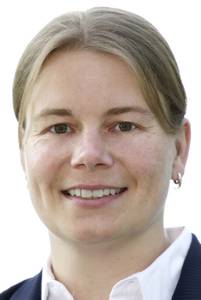
Director of Communications and Marketing, University of Konstanz and Director of the German Association of Communication Professionals in Higher Education
Julia Wandt has been the Director of Communications and Marketing at the University of Konstanz since 2010. Beginning in 2014, she also took on the role of director of the German association of communication professionals in higher education. This association brings all German university directors of communications together at the strategic level. Additionally, she is regularly appointed to expert committees on the status and future prospects of science communication, e.g. by the Bundestag (German federal parliament; in 2015) and by the Federal Ministry of Education and Research (since 2018). Julia Wandt studied media and communication science, marketing, political science and private law at the University of Göttingen.
Prof. Reza Razavi
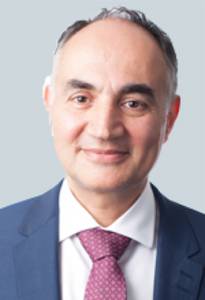
Vice President & Vice-Principal (Research), King’s College London and Director of Research at King’s Health Partners
Prof. Reza Razavi is Vice President & Vice-Principal (Research), King’s College London and Director of Research at King’s Health Partners.
Prof. Razavi qualified in Medicine at St. Bartholomew’s Medical School in 1988. He later trained in Paediatrics and Paediatric Cardiology and started a research career following his clinical training. His research is in imaging and biomedical engineering related to cardiovascular disease. He is also Director of the King’s Wellcome Trust EPSRC Centre For Medical Engineering. Prior to becoming Vice President & Vice-Principal (Research), Professor Razavi held the post of Head of Division of Imaging Sciences and Biomedical Engineering (Jan 2007- March 2017) and Assistant Principal (Research & Innovation) (July 2015 – March 2017).
Korinna Strobel
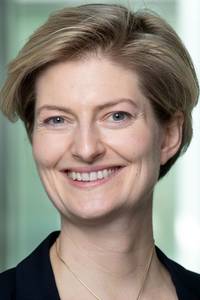
Director of Strategy, Helmholtz Association, Berlin
Helmholtz is an association of 19 large German research centres with the mission to address major challenges of science and society. It has recently revised its talent management guidelines and activities with a strong focus on providing young talent with the skills to succeed both inside and beyond academia. At various stages of the academic career, researchers are given the opportunity to explore entrepreneurial thinking, to consider entrepreneurship as a career or to learn how to support possible entrepreneurs within their teams. Feedbacks from a recently established career orientation programme for postdocs provide insights into the challenges that still need to be tackled.
Dr. Korinna Strobel is head of the strategy department of the Helmholtz head office in Berlin. After studying Rhetoric, Psychology and History at the University of Tübingen, she joined the Leibniz Institut für Wissensmedien, a media psychology research centre. Korinna Strobel obtained a PhD degree in Rhetoric from the University of Tübingen. She served as a programme officer for the Helmholtz Association’s intramural funding schemes for a number of years and then headed the team responsible for quality assurance in higher education at the University of Rostock. In her current position, she is among other things responsible for the Helmholtz Association’s talent management activities.
Arnold Boon
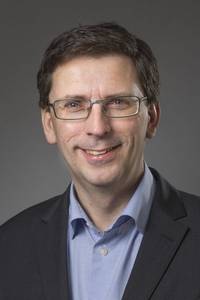
Director of Administration, Aarhus University
Arnold Boon is a strategic leader with solid management skills and experience from higher education and research institutions. As Executive Vice President and member of the Senior Management Team at Aarhus University, he is responsible for the University administration, including finance, HR, IT, student administration and research support. Arnold is also responsible for real estate and campus development. With more than 18 years of experience with financial management and a wide experience in leading major change projects, digitisation, continuous process improvement and organisational changes.
Henrik S. Rasmussen

Director Open Platforms, Research Products, Elsevier
Research Information Systems offer institutions the ability to collect more information about their research activities than ever before. Measuring the research activity at an institution is so much more than scholarly output counts and citations and institutions are asking researchers to record every aspect of their research activity, from the inception of an idea to a funding proposal.
It is becoming the standard that funding bodies request the awardees of grants to report back on societal and economic impacts and primarily use the academic impact metrics for evaluating grant applications.
The session will question whether it is feasible to build evidence and measures on societal and economic impact within the time horizon funding bodies request awardees to report back to the them and demonstrate that we seldom have linear discoverable traces to follow from the individual funding opportunity to a societal and economic impact.
Henrik will address the importance of common interoperable interfaces and open standards. The adoption of common standards will ease the reporting burden for all stakeholders and immensely help answering strategic questions and support decision making.
Collecting complete and current information in Research Information Systems combined with metrics will support awardees, institutions and funding bodies in order for them all to get valuable indications of impact.
Henrik S. Rasmussen is of the founding fathers of the Research Information System Pure. He has overseen product strategy, design of the data model and the user experience in Pure. He served university customers all over the world transforming their requests and helping them increase research performance with software solutions.
He has been working closely together with customers on research assessment exercises in different markets and has a broad experience on capturing and analysing impact transforming their need to software solutions.
He has been an active member for more than 10 years of the euroCRIS CERIF task group defining the domain of Research Management Information.
About Elsevier
Elsevier is a global information analytics company that helps institutions and professionals progress science, advance healthcare and improve performance for the benefit of humanity. Elsevier provides digital solutions and tools in the areas of strategic research management, R&D performance, clinical decision support, and professional education; including ScienceDirect, Scopus, ClinicalKey and SciVal. Elsevier publishes over 2,500 digitized journals, including The Lancet and Cell, more than 35,000 e-book titles and many iconic reference works, including Gray’s Anatomy. Elsevier is part of RELX Group, a global provider of information and analytics for professionals and business customers across industries.
Gero Federkeil

Head of International Rankings, CHE Centre for Higher Education; Managing Director U-Multirank
In a matter of only 15 years, since the first publication of the Shanghai Ranking in 2003, more than 20 international rankings have emerged. They have become an integral part of international higher education, creating an obsession among universities to become a so-called ‘world-class’ university. Rankings have gained policy impact on national policies and institutional strategies as well as behaviour. On a national level, rankings are now used to define eligibility of foreign universities to participate in student and academic exchange programmes, for decisions about the acknowledgment of foreign academic degrees, and, even in immigration policies. Results of global rankings have influenced national excellence strategies in a number of countries. Institutions use ranking results for their marketing and reputation management. And last but not least, rankings drive institutional strategies.
The presentation will question whether rankings are a good driver for institutional strategical management with regard to their methodology and the information provided by rankings. Some evidence from U-Multirank, a unique multi-dimensional transparency tool, is used to demonstrate how a better ranking approach can support universities’ strategic management by providing meaningful benchmarking information and tools.
Gero Federkeil is Head of International Rankings at CHE Centre for Higher Education, a private non-for profit think tank located in Guetersloh (Gemany), and he is Managing Director of U-Multirank, a new global multi-dimensional transparency tool.
From 2000 to 2011 he was senior project manager in the national CHE Ranking of German universities, the first multi-dimensional university ranking presenting an interactive website allowing for personalised rakings. His major areas of work include rankings, performance indicators, evaluation, benchmarking and quality assurance. Before joining CHE he worked as consultant for the German Council of Sciences and Humanities, a public advisory body in higher education policy, covering areas as university planning and investment, teaching evaluation, higher education and labour market/employability, and university medicine. Gero Federkeil has published extensively on rankings, indicators and quality assurance.
Gero Federkeil is a founding member of IREG – International Observatory on Academic Rankings and Excellence; he is co-author of the Berlin Principles Of Ranking on Higher Education Institutions. From 2009 to 2018 he was IREG Vice-President and member of the Executive Committee. He holds a Master degree in Sociology from University of Bielefeld.
Ian Creagh
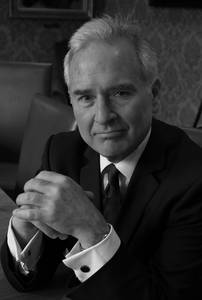
Conference Facilitator
After serving 10 years as King’s College London’s Senior Vice-president Operations & College Secretary, Ian now holds a portfolio of roles including Strategy Consultant for HUMANE. Prior to King’s, he held similar chief operating officer roles at City University London and before that, the University of Adelaide. The first part of his career was in the Australian Public Service where he rose early on to become a member of the Senior Executive Service. Ian is also an experienced non-executive having served on the Board of King’s Health Partners, the Council of Governors of an NHS Foundation Trust, and the audit committee of the British Academy.